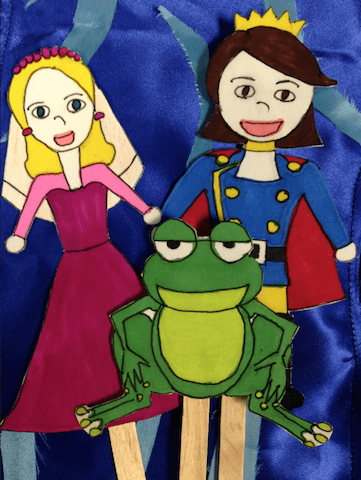At lunch with our mother last week, my sisters and I got to talking about our teenaged years and dating. My older sister and I confessed to breaking curfew—once for her, three times in a row for me then grounding—and my younger sister recounted her morning-after interrogations of us about kisses. “Did you? How many? How long…” We stared at Mother and laughed, knowing she’d egged it on.
Then I leaned forward and lowered my voice. “I remember my first kiss.” My sisters leaned in, too, eager to hear my secret. I’d asked one of the neighborhood boys to a dance at school, and he drove me home. “It was a sloppy disaster,” I said. “Neither of us had a clue what we were doing.”
More laughter ensued. “You’ve got to kiss a lot of frogs,” my younger sister said.
“Some might have thought I was the frog,” I said.
As we shared more stories about the boys we’d dated as teenagers—and the bad poetry Mother wrote and posted on the kitchen door to welcome us home—I pondered. Girls don’t see themselves as frogs, only as princesses. Why are boys always the frogs and girls the princesses?
On Friday night, Keith and I saw Anne Page Hates Fun, a play by Amy E. Witting, which premiered this season at the Blackfriar Theater in Staunton. Like Shakespeare’s The Merry Wives of Windsor, the play “has at its heart the friendship of two women; they are the heartbeat of their communities,” stated the program notes. In Anne Page Hates Fun, the community was Windsor, New Hampshire, and the charming, small-town characters reminiscent of Thornton Wilder’s Our Town.
Protagonist Anne Page is a high school English teacher who never left home, and her dear friend is married to the town doctor. Woven into the play are contemporary themes related to a Muslim exchange student’s liberation from her parents’ traditional ways and young Page’s past harassment by her male English teacher. Due to the harassment, Annie Page lost her innocence, her beautiful smile and singing voice, and any interest in fun.
 For me, the play seemed like the ages-old fairy tale, “The Frog King.” (See note below.) Anne Page plays the princess, her friend the queen, and another friend, a writer who isn’t writing, the frog prince. The “queen” has cancer, and her dying wish is for the “princess” and their “frog” friend to be married. As in the fairy tale, the princess and the frog live together for a while, during which he becomes a prince who writes. In the end, his kiss restores Anne Page’s beautiful princess smile and voice.
For me, the play seemed like the ages-old fairy tale, “The Frog King.” (See note below.) Anne Page plays the princess, her friend the queen, and another friend, a writer who isn’t writing, the frog prince. The “queen” has cancer, and her dying wish is for the “princess” and their “frog” friend to be married. As in the fairy tale, the princess and the frog live together for a while, during which he becomes a prince who writes. In the end, his kiss restores Anne Page’s beautiful princess smile and voice.
(Image from: https://library.austintexas.gov/blog-entry/prince-princess-or-frog-whats-your-story-printable-puppets-356647)
While writing this post on April Fools’ Day, I thought about my youthful foolishness. I don’t think I wanted to be a princess, though I remember dressing up like one for Halloween at least once. And I liked to catch frogs in the ponds and streams around our house, though I don’t remember kissing any of them.
What I know for sure is how grateful I was and am for the courageous frog prince who gave me my first kiss. He will always have a place in my heart.
Note: For more about “The Frog King,” read Bruno Bettelheim’s The Uses of Enchantment: The Meaning and Importance of Fairy Tales.



I think you’d enjoy this song that was out when my youngest was a teenager, by Superchick, a band we liked to listen to together. (She is now married to a prince. 😉 )
Thank you for the link – what a great song! Glad to know your daughter found her prince. Eventually, I did, too.
Oops forgot the link:
https://www.youtube.com/watch?v=RfYNi9WRJb8
I always liked that story.😊 God bless!
Awhhhh this was sweet.💕👑
Hmm, I wonder what stories my daughters share about their younger years. They are grown up and married now. A father might ponder for a moment, then shake his head, keep moving, and smile.